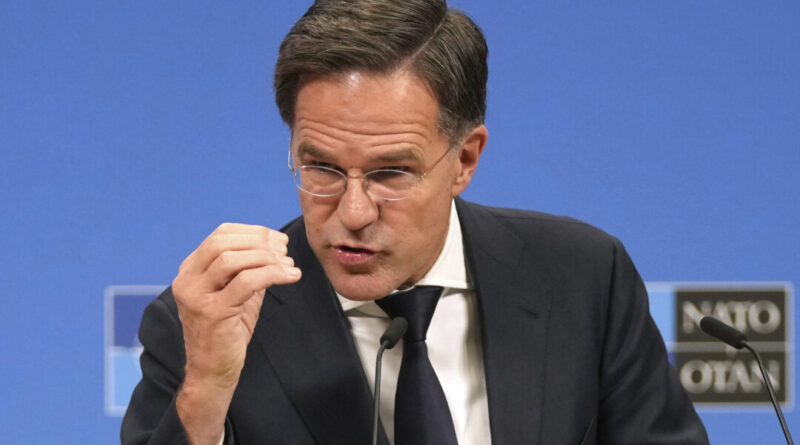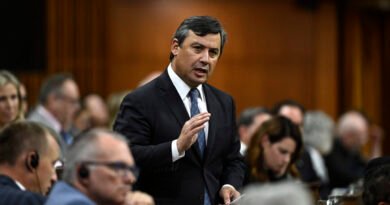NATO Leader Avoids Answering Question Regarding Ukraine’s Possibility of Joining Alliance
Mark Rutte also raised concerns about the increasing influence of China and Russia in Africa and the Middle East, emphasizing the need for NATO to take action in those regions.
NATO Secretary-General Mark Rutte avoided addressing a question about Ukraine’s potential membership in the alliance during a press conference in Brussels on Tuesday.
Responding to a journalist’s query about Ukrainian President Volodymyr Zelenskyy’s statements on Monday regarding the possibility of ending the conflict by granting Ukraine NATO membership, Rutte stated, “The front is not shifting eastward but rather gradually moving westward.”
He emphasized the importance of empowering Ukraine to make decisions about peace negotiations and strategies once it attains a position of strength.
During a NATO summit in Washington in July, leaders acknowledged Ukraine’s progress towards eventual membership in the alliance.
However, there is hesitation regarding Ukraine’s immediate inclusion while it is engaged in conflict with Russia, a nation with a significant nuclear arsenal.
In Tuesday’s speech, Rutte reiterated NATO’s goal of allowing Ukraine to negotiate from a position of strength.
He stated, “Let’s not predetermine the specifics of the peace process but focus on ensuring Ukraine is adequately prepared for initiating peace talks.”
Rutte emphasized the need to equip Ukraine to attain a position of strength before peace negotiations commence.
The Ukrainian foreign ministry later issued a statement asserting its unwavering commitment to full NATO membership, citing the tumultuous aftermath of the Budapest memorandum signed in 1994.
The statement emphasized that Ukraine’s security and deterrence against further Russian aggression could only be guaranteed through full NATO membership.
Rutte also commented on his recent meeting with Trump, highlighting the strategic threat posed by the alliance between Russia and China and North Korea.
He asserted, “Any resolution regarding Ukraine must be a robust agreement since we cannot afford to align with Kim Jong Un or Xi Jinping.”
He mentioned King Abdullah of Jordan’s visit to NATO headquarters and the opening of an office in Amman as steps taken by the alliance to address this issue.
Although NATO does not intend to extend membership to African or Middle Eastern nations or offer them the protection of Article 5, Rutte highlighted the importance of NATO’s active engagement in regions threatened by external influences.
He concluded by emphasizing the need for NATO to build bilateral relations and provide assistance when necessary, as exemplified by the mission in Iraq.
“We cannot allow Russian and Chinese dominance in Africa and the Gulf,” he added.
This report includes contributions from The Associated Press.





